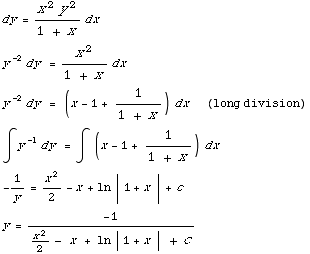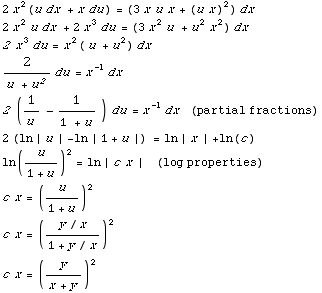Differential Equations Quiz #2 February 25, 2005
Name____________________ R. Hammack Score ______
_________________________________________________________________________________
(1) Solve the differential equation

(2) Solve the differential equation 2
This becomes 2
Use substitution u=y/x; y = ux; dy=u dx +x du, and this becomes

Now plug in (x,y)=(1,-2) and get
c =
SOLUTION: 4 x=
(3) It the solution to the initial value problem in the previous question (2) unique? Why or why not.
That D.E. is
Both f and